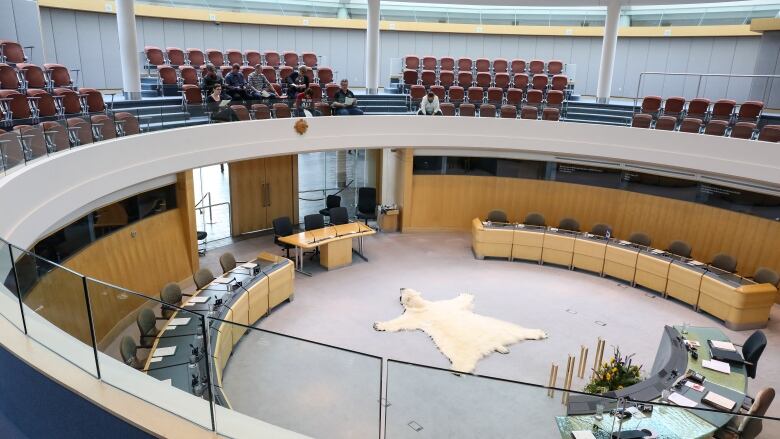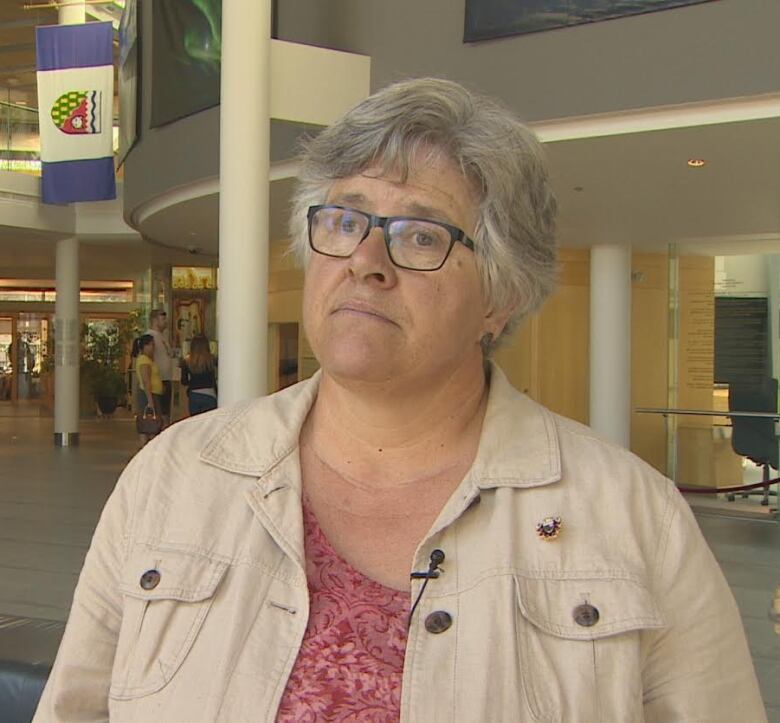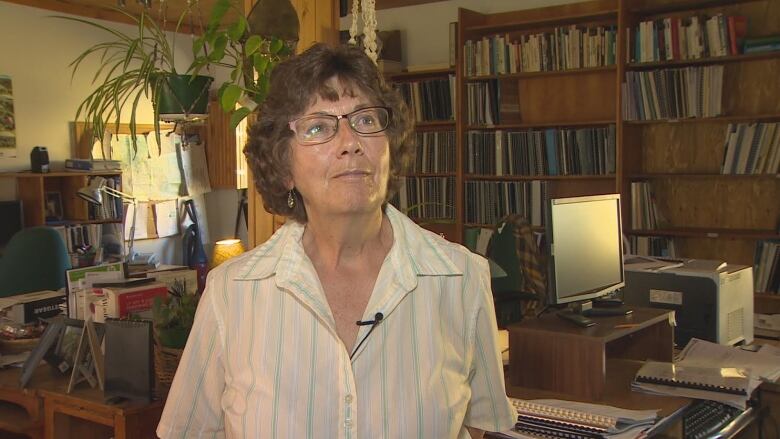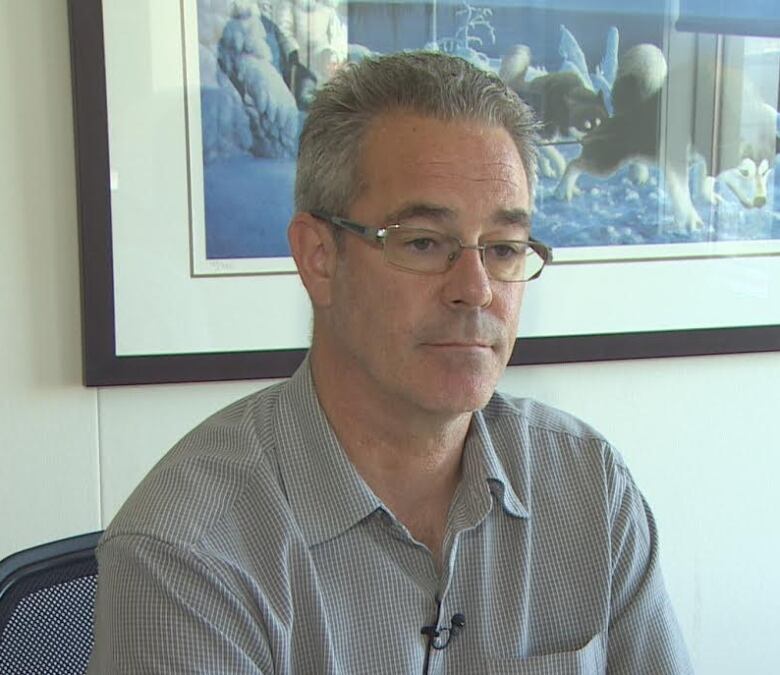N.W.T. government spent $90M on sole sourcing contracts in 2014-15
Amount likely to increase this year as limits go up

Some of the businesses Northwest Territories government officials turn to mostwhen they award consulting contracts without putting them out to competition are former government officials and politicians.
That's one of the findings of an analysis CBC did, with raw government data provided byopennwt.ca a websitethat promotes government transparency of sole-source contracting by the N.W.T. government.
Sole-sourcing is when government officials pick and choose companies to which they give government contracts, instead of allowing them to compete for the business.
Over the last 10 years, the government has used sole-sourcing almost 30 per cent of the time it contracts for goods and services, the CBC analysis revealed. In 2014-15, the last full year in which contract records are available, it spent $90 million through sole-sourcing.
That will likely increase starting this year. As of April 1, the government dramatically increased the discretion officials have to issue sole-source contracts.
Raising the limits
Previously the governmentcould, without explanation, choose to sole-source a contract to a particular northern supplier rather than put it out to competition as long as the estimated value was under $5,000 for goods or non-professional services or $25,000 for professional services.
Those limits have now been increased to $25,000 and $50,000 respectively, with a new limit of $100,000 specifically for architectural and engineering services.
Last month, the finance minister bristled when an MLA pointed out that the changes raise the possibility of malfeasance or corruption. Yellowknife Centre MLA Julie Green made the point when questioning the government about its enforcement of the strict rules around sole-sourcing.

"I understand there is a point to sole-sourcing when it's an urgent matter or it's a specialized service and there's no competition," said Green in an interview last week.
"But this sole-sourcing seems to be open to companies that are competitive with one another and to companies that are not based in the Northwest Territories, and so the oversight for that seemed to be lacking."
A 2009 auditor general's review of contracting by the Northwest Territories government reached a similar conclusion. The auditor general reviewed a sample of 53 sole-sourced contracts and found that almost 20 per cent of them did not comply with government contracting regulations.
And the territorial government does not have to look far to find an example of how allowing officials to pick and choose who gets government business can create problems.
Just last month, the Alberta government removed the board of directors from one of its agenciesthe Agriculture Financial Services Corporation and suspended three senior executivesafter an anonymous tip exposed improper sole-source contracts, expense claims and lavish gifts.
Familiar faces getting contracts
One of the contracts most often sole-sourced is for consulting providing independent advice on government programs, policies and initiatives, arranging conferences and doing studies.
The N.W.T.'s Department of the Executive, which relies more than most departments on consultants, uses sole-sourcing for about 70 per cent of the contracts it enters into.
-
Government removes board of Agriculture Financial Service Corporation, suspends three top executives
And some of the recipients of consulting contracts are very familiar.
A consultancy run by former premier Stephen Kakfwi has been awarded 15 sole-source contracts worth a total of $586,000 in the last eight years.
Former deputy minister of Finance, Lew Voytilla, has been awarded 22 sole-source contracts in the last nine years, worth a total value of $567,000.

Mark Cleveland, a deputy minister of Education, Culture and Employment who left the government in 2007, has received 10 sole-source contracts worth $242,000.
There are also former senior government officials who have been popular sole-source customers since they left government.
Andy Swiderski, who now lives in British Columbia and runs Gaea Consulting, has received 22 sole-source contracts since 2011-12 for a total of $1,050,000. According to government records, Gaea has bid on two competitive contracts, but failed to win either.
Before moving to B.C., Swiderskiran a consultancy called Terriplan, which was awarded 13 sole-source contracts worth $716,000.
Another former government worker who now lives in British Columbia, Hal Gerein, has been awarded 17 sole-source contracts in the last 12 years worth $827,000.
Rules for sole-sourcing
As previously noted, government officials are permitted to hand contracts to northern companies without any rationale for sole-sourcing when the contracts fall under the maximum dollar limits.
The government says this helps northern businesses, because it avoids the possibility that those contracts may be won by larger southern companies.
"The Chamber of Commerce's businesses, the construction association, the association of architects and engineers told us to raise the limits because they were spending money trying to get low value contracts," said deputy minister of financeMike Aumond. (CBC requested an interview with Finance Minister Robert C. McLeod for this story but he was not available.)
"Particularly with the A and E [architecture and engineering] community, before when the threshold was lower, the government does a pretty good job of spreading that work around, so there's a lot of, for lack of a better word, trust in the industry that the government will continue to do that."
But not everyone agrees that increasing the limits is good for small northern businesses particularly those that are not among the companies favoured for sole-sourced contracts.

"Anything that does go out to competitive tender, for competitive services, will be more than $50,000," saidLois Little, proprietor of Lutra Associates, Ltd., a Yellowknife management consultancy.
"So the size of those contracts that will go out to competitive bid will be of enough size to attract bigger firms from across Canada and internationally. That's going to make it tough for smaller businesses that have limited capacity to compete for those contracts."
Little also says increasing the limits will allow officials to hire consultants who are more likely to tell government what it wants to hear.
"Government has more latitude to pick people that they prefer to get advice from, people that are singing from the same songbook as they are. And that's troublesome because that doesn't ensure that we're getting value for money, it doesn't ensure that the government is getting the best advice that it could get."
Above the limits
For contracts above the limits, officials can still use sole-sourcing in emergency situations, or when only one contractor is capable of doing the work.

CBC sent in a sample of contracts to the government and requested an explanation for why sole-sourcing was used. The most common justification was that there is only one contractor available to do the work.
Some examples of the work government officials believed only one company was capable of doing: organizing an energy charrette, media relations at a conference, conducting a strategic planning workshop, analyzing the Department of Lands' organizational structure, reviewing the Department of the Executive's communications, corporate rebranding.
The auditor general identified this problem in the 2009 review of contracting by the territorial government. In the small sample of sole-sourced contracts that was reviewed, there were three that were sole-sourced by senior officials in the Health department on the basis that there was only one contractor that could do the work. But the auditor general found the officials could not show why only one company was capable of doing the work.
The contracts were worth a total of $5.5 million.
While the Northwest Territories government appears to be moving toward more sole-sourcing, Alberta is moving in the opposite direction. It used to allow sole-sourcing service contracts of up to $75,000. That's been dropped to $10,000. The limit for sole-sourcing for construction work has been reduced to $50,000 from $100,000.
Each quarter, the Alberta government now publishes a list of all the contracts it sole-sources.
with files from Jacques Marcoux












_(720p).jpg)


 OFFICIAL HD MUSIC VIDEO.jpg)
.jpg)



























































































